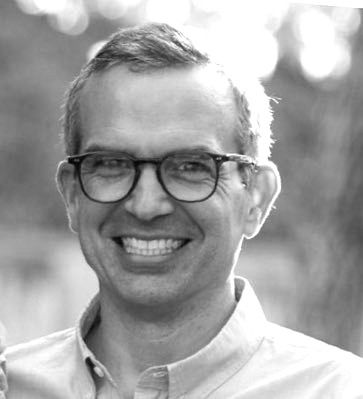A division of the
American Psychological Association
Annual Convention
Preconference
CONNECTING RESEARCHERS
INSPIRING SOLUTIONS
Join us for the first annual SPSS preconference (i.e. symposium) focused on ending prejudice and discrimination in sports. The SPSS is a division of the American Psychological Association. It holds topic-specific preconferences before its annual convention.
Racism, sexism, homophobia, and other forms of prejudice remain systemic problems in youth and adult sports. These problems have been extensively studied over the last half-century, but there has been little research focused on finding solutions. This needs to change.
Solving these issues will require multi-disciplinary teams and industry collaboration. Social psychologists also have an important role to play.
This online/virtual event is an opportunity to learn and connect with researchers from different disciplines.
A key objective: form a community of scholars.
Registration
Preconference only: $28 - $83
Full convention: $69 - $345
Choose the "Sport" preconference
SCHEDULE
All sessions are PST (San Francisco/Vancouver)
Subject to change - Please revisit the week before event
9AM San Fran
12PM Toronto/NY
5PM London
CONNECTING
Attendees will join breakout rooms to connect and share a brief overview of their research and interests.
9:20 AM
FRAMING THE PROBLEM
George Cunningham (Texas A&M) has published over 200 articles examining organizational responses to diversity and prejudice in sport settings. He is the author of the widely-used textbook "Diversity and Inclusion in Sport Organizations: A Multilevel Perspective" which is in its fourth edition. George will provide an overview of the gaps in the research and opportunities for scholars and industry practitioners to work together to create change across all areas of prejudice, discrimination, and bias in sport.
George will be introduced by Salma Mousa (Yale). She recently published the world's first cluster RCT which measured the effect of a prejudice reduction intervention in a real-world sport setting.
9:40 AM
INDUSTRY
PERSPECTIVE
As George will outline in his opening, industry collaboration is critical to the success of sport research. Four people who are passionate about driving systemic change within the sport industry will share their perspectives on the barriers to meaningful action. They will also discuss approaches that need to be considered when conducting collaborative research with industry.
The discussion will be led by Lou Englefield, the director of Pride Sports UK and long-time international leader of anti-discrimination activities in sport. Panel members will be Annabel Kehoe, CEO of British Columbia Rugby - she recently received a World Rugby Women's Executive Leadership Scholarship; Marisa Grimes, who recently left Mastercard (major sponsor) to join the US Tennis Association in the newly created role of "Chief Diversity Officer"; and James Swanson (Arsenal FC), who has managed numerous world-first anti-discrimination initiatives at Harlequin FC (UK Rugby) and the Tampa Bay Lightning (NHL).
10:20 AM
RACISM
Jason Jones (Winston-Salem State University) will open the session with the findings from his in-depth psychobiographical research with a retired Black NFL player. He will share how racial identity played a central role in all aspects of his football career, from childhood to professional. He will consider what approaches could have mitigated the negative influences of bias & prejudice.
Ala' Alrababa'h (ETH Zurich) will then share the results of a recently published real-world experiment examining hate crime data and racism on social media in the UK after Mohamed Salah, a visibly Muslim player, joined Liverpool F.C. and was widely embraced and celebrated by the team's core fan groups.
Jim Lusted (Open University, UK) has conducted extensive research on the response to racism by amateur and professional sports organizations, with a particular focus on English football (soccer). He will share the institutional and interpersonal factors which contribute to the under-representation of visible minority coaches in sport and will explain why this is hindering overall change.
The session will close with a discussion with attendees on where research efforts should be focused to drive change to racism in sport.
11:00 AM
HOMOPHOBIA & SEXISM
Erik Denison and Nadia Bevan (Monash University, Australia) will share their experience working with the sport industry co-developing behaviour change interventions in Australia, Canada, and the UK. This includes a cluster RCT evaluating an educational intervention delivered by professional rugby players to teenage boys. This commonly used approach was co-designed with industry to reduce homophobic language. They will also discuss their research in 23 others sports which has evaluated the effect of other intervention methods such as diversity audits, funding incentives, and pride games.
The session will close with a general discussion around how to effectively collaborate with sports organizations and conduct research in typically chaotic, loosely organized, and volunteer-run settings.
11:25 AM
MOVING FORWARD
Gretchen Kerr (University of Toronto) has conducted numerous reviews of the sport industry's responses to discrimination and the institutional factors which enable harmful behaviors. She has also examined the gaps in the research. Gretchen will share an overview of her findings and then by joined by George Cunningham to wrap-together the day. They will lead a discussion on how to drive systemic change and overcome resistance from coaches, athletes, parents, and sport leaders.
11:45 AM
OPTIONAL
VIRTUAL WORKING LUNCH
Attendees will be given the option to join breakout rooms to reconnect, discuss their learnings, and agree on 2-3 ways to encourage more engagement by scholars in this research area.
12:15 - 12:30 PM
NEXT STEPS
Co-chairs Erik Denison and Nadia Bevan will close the day by leading a sharing discussion from the working lunch and determine action items for 2023. Overall conclusions will be shared with the SPSP leadership and the wider American Psychological Association network.
PRESENTERS

















